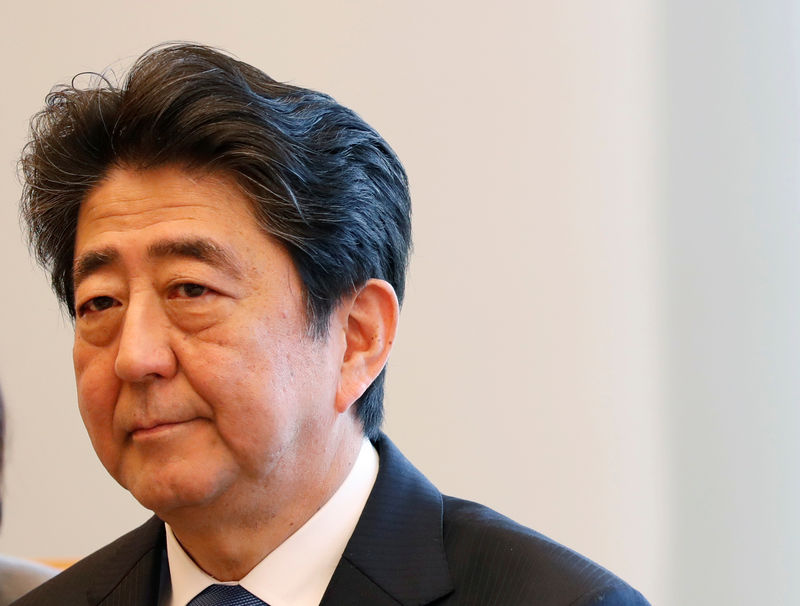By Tetsushi Kajimoto
TOKYO (Reuters) - Big Japanese companies are set to agree on Wednesday to raise wages for a fifth year but likely stop short of meeting Prime Minister Shinzo Abe's 3 percent goal, adding to doubts the central bank will be able to hit its consumer price target.
The results of the "shunto" spring wage negotiations between corporate management and unions, announced by the big automobile and electronics companies, will set the tone for wage hikes across the nation and could provide hints about future consumer spending.
Abe has been campaigning for a 3 percent gain to spur consumption and banish the deflation that has dogged Japan's economy for nearly two decades. Bank of Japan Governor Haruhiko Kuroda has also urged a 3 percent raise to nudge up inflation to the BOJ's long elusive 2 percent target.
Wage growth is expected to accelerate given bigger bonuses, and rising pay at small firms and for part timers. Still, it won't reach Abe's 3 percent target or be strong enough to clear hurdles for the central bank to raise rates, some analysts say.
"The Bank of Japan won't move this year. It will probably wait to see results of next year's shunto," said Yoshimasa Maruyama, chief economist at SMBC Nikko Securities.
Even though many Japanese companies are sitting on piles of cash from healthy earnings, they are wary of boosting base salaries because that commits them to higher fixed personnel costs. Instead, they prefer one-off bonuses and other benefits.
Toyota Motor Corp (T:7203), considered a bellwether in the country's annual wage negotiations, is set to raise base monthly salaries by more than 1,300 yen (8.73 pounds) for the year beginning April, local media reported.
It marked the fifth straight year the automaker lifted workers' pay, but the increase is less than the 3,000 yen demanded by its union.
A Toyota spokeswoman said it was considering raising wages and other benefits, such as family allowances, so that all unionised workers would on average get a 3.3 percent -- or 11,700 yen -- boost in monthly payment.
Over the past four years, major companies agreed to raise wages about 2 percent each spring. The bulk of that - about 1.8 percent - comes automatically under Japan's seniority-based employment system. Anything beyond that is a hike in "base pay."
Several economists have forecast major companies would agree this year to base pay increases of 0.5-0.6 percent, which with the seniority-based automatic salary rise would lift wage growth to around 2.3-2.4 percent.
That would be above last year's 2.11 percent hike and in the neighbourhood of 2015's 2.38 percent rise, which was a 17-year high.
However, there's a risk that wage gains could be offset by cuts in overtime pay in the coming year as companies come under pressure from the government to curb Japan's notoriously long overtime hours.
Also, rises in deductions for social security to service the rapidly aging population could cut into wage gains, analysts say.

Japan's unions tend not to be as aggressive in pressing their demands as those in the West because they attach greater importance to job security and maintain a sense of corporate loyalty.